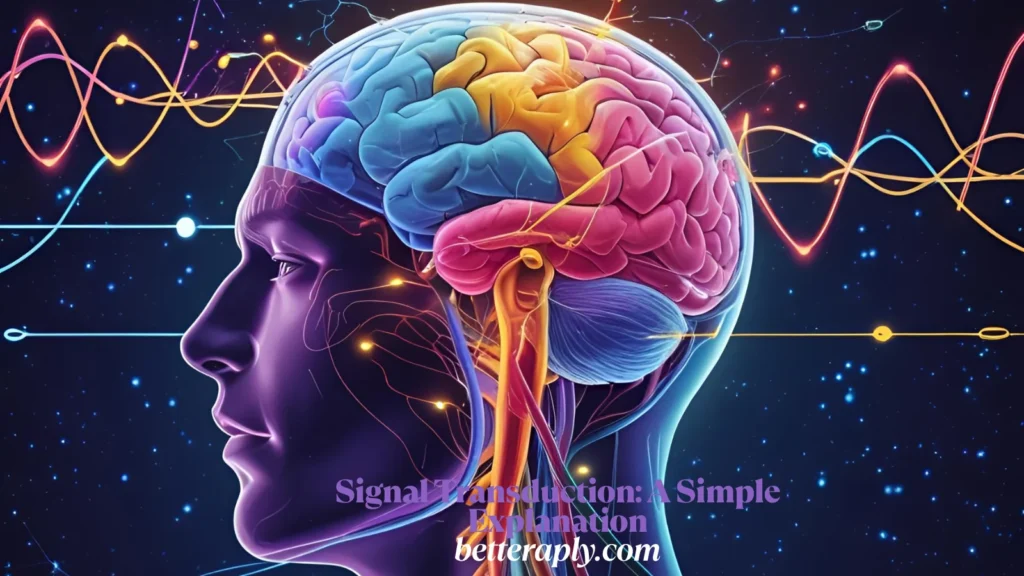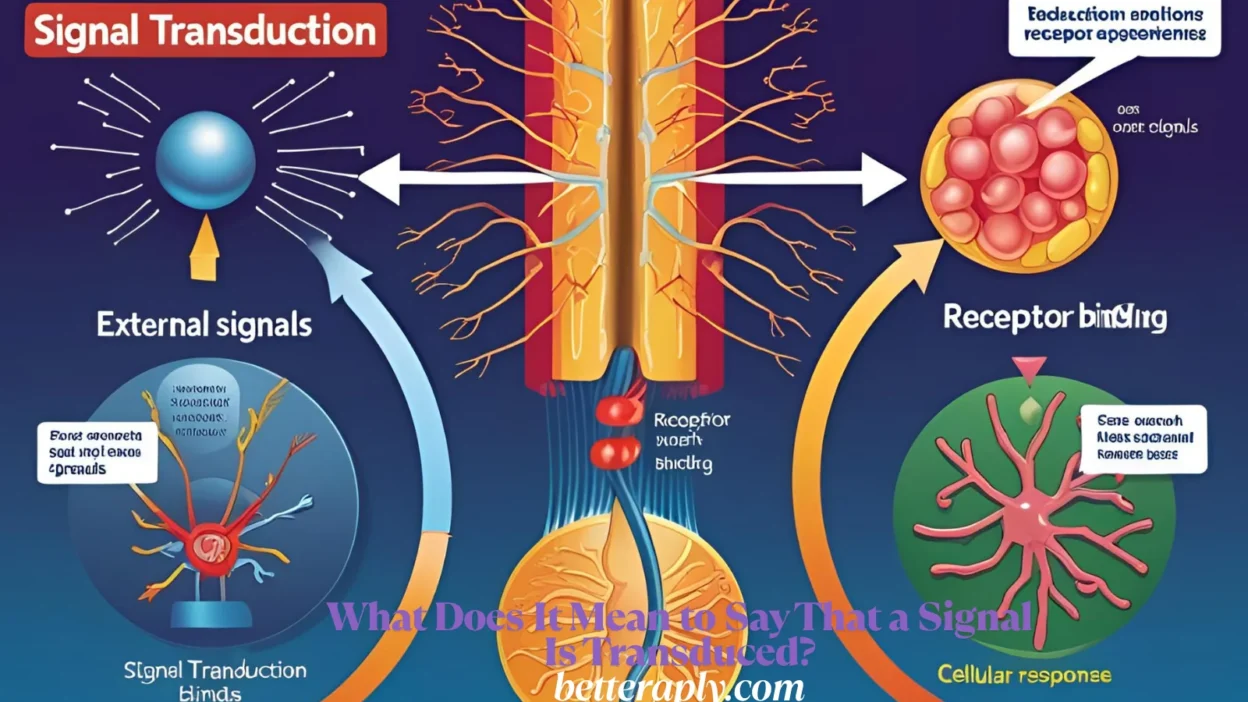Have you ever wondered how your body knows when to react to something—like pulling your hand away from a hot stove or feeling excited when you hear great news? Behind the scenes, your body is doing something amazing. It’s transducing signals—but what does it mean to say that a signal is transduced?
In simple terms, signal transduction is how your body turns one kind of message (like light, sound, or touch) into another kind of action (like a nerve firing or a muscle moving). It’s like translating a foreign language so your body can understand and respond. This process happens in cells, nerves, and even your senses—and it keeps you safe, aware, and connected to the world around you.
In this article, we’ll explore what signal transduction really means, how it works, and why it’s so important to everyday life and health.
Sorry Generator
Signal Transduction: A Simple Explanation

To transduce a signal means to change one type of signal into another. In biology, this usually means turning an outside signal (like touch, sound, or a chemical) into a cellular response.
Think of it like this:
🔊 You hear your phone ring → Your brain processes the sound → Your hand reaches for the phone.
That whole chain is powered by signal transduction. Sound waves became a nerve signal, and that signal made your muscles move.
🧠 In your body, transduction often starts with a receptor (like a sensor) that picks up a signal and passes it along, creating a series of changes inside a cell or organ.
Real-life example:
- When sunlight hits your skin, it triggers cells to make Vitamin D. That’s signal transduction in action!
Where Does Signal Transduction Happen?
Signal transduction can happen in many parts of the body, especially in:
- Nerve cells (neurons)
- Hormonal systems
- Sensory organs like the eyes, ears, and skin
Each time your body reacts to something around you—like light, smell, heat, or pressure—it’s because a signal was transduced into a form your cells can respond to.
Example:
- You touch something hot 🔥 → The skin senses heat → Nerves send the signal → Your brain says “Pull back!”
What NOT to say:
- “The body just knows.” (That’s not enough. Transduction explains how the body knows.)
The Role of Receptors in Signal Transduction
Receptors are the starting point of signal transduction. They sit on the surface of cells, ready to detect specific signals. Once a receptor picks up a signal, it sends that message deeper into the cell to make something happen.
Example:
- You eat sugar → Receptors in your tongue detect it → Your brain processes the sweetness → You feel pleasure.
This is transduction of a taste signal—a perfect example of how fast and helpful your body’s communication system is.
What to say:
- “Receptors help the body notice signals and react to them.”
What NOT to say:
- “The brain does everything.” (Receptors are crucial too!)
Why Is Signal Transduction Important?
Without signal transduction, your body wouldn’t know how to react to anything. You couldn’t feel pain, enjoy flavors, balance your hormones, or even fight off infections.
📌 It helps with:
- Reflexes (like pulling away from danger)
- Growth and healing (cells know when to divide)
- Balance (your inner ear uses signal transduction)
- Emotions and memory (your brain uses chemical signals)
Real-life scenario:
- You feel anxious 😰 because of stress → Hormones are released → Cells respond by speeding up your heart.
This chain of events only works because signals are transduced properly.
Everyday Examples of Signal Transduction
Let’s look at some easy-to-understand examples:
- Smelling a flower 🌸
→ Nose receptors detect chemicals → Signal is transduced into nerve impulses → Brain identifies the smell. - Listening to music 🎧
→ Ear picks up sound waves → Signal is transduced into electrical nerve signals → Brain hears a melody. - Touching ice ❄️
→ Skin receptors feel cold → Signal transduced into a nerve message → Brain tells you it’s freezing!
What to say:
- “Transduction turns outside signals into messages the body can understand.”
What NOT to say:
- “It’s just automatic.” (It’s automatic because of transduction.)
Signal Transduction in Medicine and Health
Doctors and scientists study signal transduction to understand and treat diseases. When these signals don’t work right, it can lead to problems like:
- Diabetes (when insulin signals aren’t received)
- Cancer (when growth signals go wild)
- Depression (when brain signals are off-balance)
New treatments often focus on fixing broken signal pathways so the body can respond normally again.
Example:
- Certain drugs help transduce pain signals so they’re blocked—giving pain relief to patients.
Final Thoughts:
So, what does it mean to say that a signal is transduced? It means your body is changing one kind of message into another—so it can understand, react, and protect you. From a buzzing phone to a warm hug, everything you feel or do is powered by this amazing process.
Whether it’s taste, touch, sound, or emotion, signal transduction is happening all the time—helping your body turn the world around you into action, awareness, and healing.




